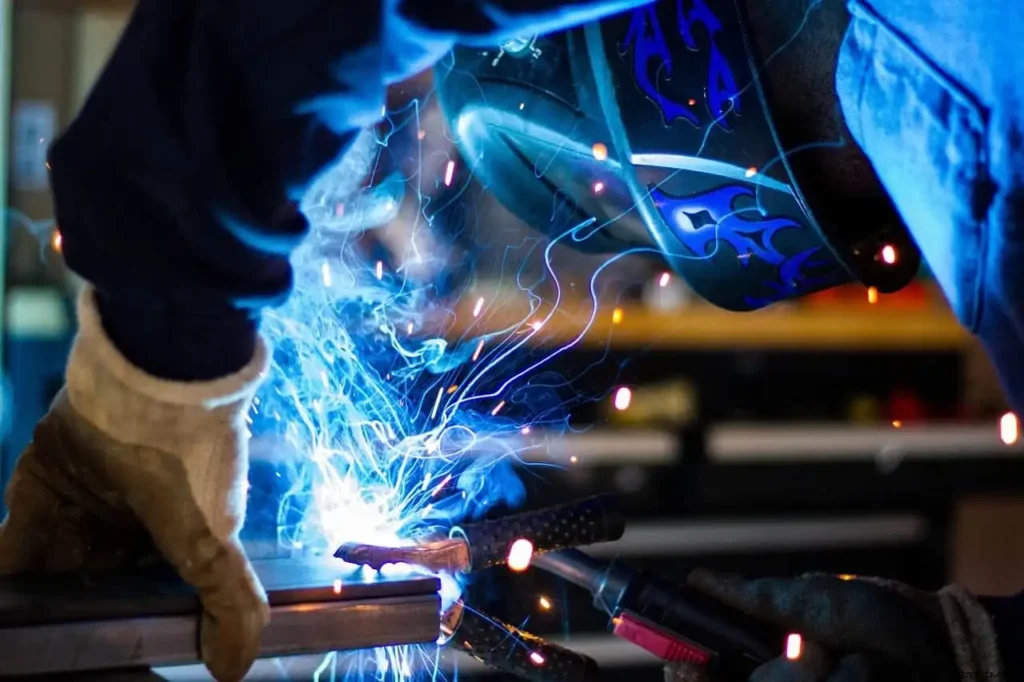Messi Biology stated that magnesium carbonate (MgCO₃) is widely used in welding materials, and is mainly used as an additive in welding materials and plays a multi-faceted role. Its application is mainly reflected in the composition of welding rods, welding wires and other welding powders. Specifically, the role of magnesium carbonate in welding materials can be summarized into the following key points:

1. Components of welding rod skin
Magnesium carbonate is often one of the main components of welding rod skin. During the welding process, the main function of the medicinal skin is to protect the molten pool, stabilize the arc, and reduce the oxidation of the welded metal. Magnesium carbonate decomposes to magnesium oxide (MgO) and carbon dioxide (CO₂) when heated. Among them, magnesium oxide has strong antioxidant properties, can effectively protect the molten pool and welds, prevent the welding metal from contacting with moisture and oxygen in the air, thereby reducing oxidation and pore defects.
2. The stability of welding arc
During welding, the decomposition product of magnesium carbonate contributes to the stability of the arc. It helps to reduce the scattering of arc light by releasing gases (such as CO₂), thereby improving the stability of arc during welding. This makes the welding process smoother and reduces the inhomogeneity of the welds.
3. Control of welding smoke and harmful gases
During welding, the gas decomposition of the powder skin can play a certain role in controlling the emission of smoke and harmful gases. Magnesium carbonate releases gases during welding, usually relatively environmentally friendly and releases less gases than some other additives, thus helping to reduce environmental pollution during welding, especially when welding in closed or poorly ventilated spaces, which can reduce the welding process. concentration of harmful gases.
4. Improve the quality of welding metal
As a protective agent in welding materials, magnesium carbonate can effectively prevent the metal in the molten pool from being contaminated by oxygen, nitrogen, water vapor and other in the air, and reduce the occurrence of welding defects such as pores, inclusions, and cracks. It also helps weld metal maintain high quality, ensuring the strength and corrosion resistance of the welded joints.
5. Improve the forming of welding metals
Since the magnesium oxide produced by decomposition of magnesium carbonate at high temperatures can form a protective film during the welding process, this film helps to improve the surface quality of the weld metal, avoid cracks and excessive oxidation during the welding process, and ensure the weld Beautiful and quality. In addition, it also has a positive impact on the fluidity and formability of the weld, making the weld more uniform and smooth.
6. Improve the welding ability of welding rods
Magnesium carbonate has good fluidity and decomposition characteristics, which helps to improve the welding ability of welding rods. It can not only improve the stability of welding, but also improve the control of arc, making the molten pool form more ideal during welding, and the welding operation is easier to carry out, reducing welding defects.
7. Prevent the cracking of the welding rod powder during welding
The addition of magnesium carbonate can enhance the strength and toughness of the electrode powder skin, reduce the cracking or falling off of the powder skin during welding, especially in high temperature environments, which can enhance the stability of the powder skin during high temperature welding.
8. Improve the high temperature resistance of welding materials
Magnesium carbonate itself has a high melting point. During the welding process, magnesium carbonate can maintain good chemical stability at high temperatures, and the magnesium oxide generated after decomposition also has high heat resistance. Therefore, the use of welding materials containing magnesium carbonate can effectively improve the high temperature resistance of the materials during welding and is suitable for high temperature welding environments.
9. Enhance the mechanical properties of welding materials
Due to the chemical stability of magnesium carbonate, it can improve the mechanical properties of welded metals, especially in terms of crack resistance, oxidation resistance and corrosion resistance of welds. During the welding process, magnesium carbonate enhances the durability and service life of the welded metal through the protective effect of its decomposed product magnesium oxide.
10. Cost-effective
Magnesium carbonate is a relatively inexpensive chemical that can effectively reduce costs when used in welding materials. It can not only improve the stability and welding quality of the welding process, but also have good economic benefits. It is a cost-effective welding material additive.
